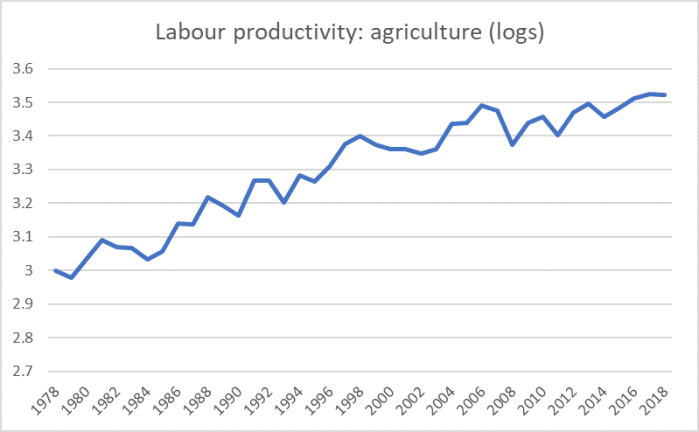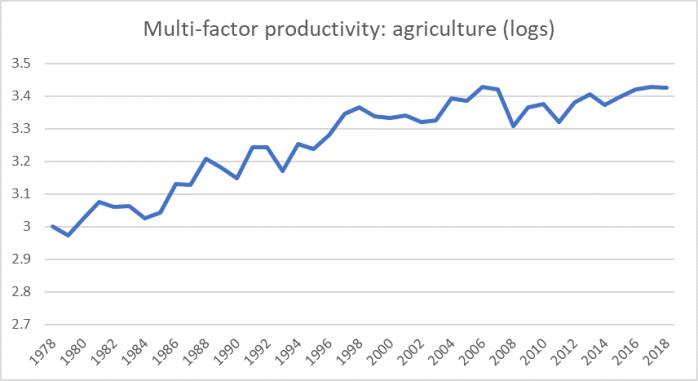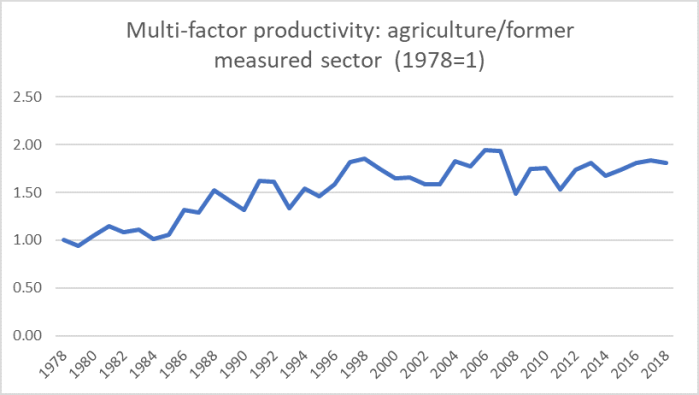To listen to some of the more overblown rhetoric this week, you’d could only conclude that the speakers/writers thought that anyone opposed to the UN Compact on Migration – signed late last year by many countries, including New Zealand, but boycotted by another 29 (including 9 EU countries, the US, and Australia) – was at least indirectly responsible for Brenton Tarrant’s¹ [alleged] act of evil last Friday.
Most directly in their sights, so it seemed, was the National Party which (rather belatedly) opposed the Compact, promised to withdraw from it if/when returned to government, and had been running a petition of some sort opposed to it. National didn’t help themselves by, whether through incompetence or something worse, initially giving erroneous stories about when the petition had been taken down. Straight after the shootings appeared to be the final story. As if they were now embarrassed by their previous stance – or simply anticipated the deranged rhetoric of the last few days.
I went back and reread the UN Compact this morning. I came away with much the same view as I’d taken in December. The document is unnecessary (as, largely, is the United Nations), statist, strongly pro-immigration….and it is a little chilling in a few places. More than enough reason not to sign it – the world is, after all, awash with largely meaningless resolutions, including from the United Nations, and that shouldn’t be encouraged. But as I noted in my single post back then, I hadn’t written anything about it previously
as not only was it a non-binding political declaration, but most of it seemed more relevant to countries dealing with substantial illegal migration (and with migration mainly from very poor or disrupted countries – again, not the main situation in New Zealand).
I was, and remain, more than a little suspicious of National’s belated commitment to the issue.
My suspicion remains that National’s stance is more about positioning relative to New Zealand First – the contest for provincial votes – than anything of substance.
But perhaps I’m being unfair to them.
What follows is the heart of my earlier post, without blockquoting it all.
But it still isn’t clear to me quite what additional damage would be done by signing up to this pointless agreement. Sure, even “non-binding” agreements will, at times, be used in domestic and international fora as a rhetorical stick to beat governments with if they ever look like stepping out of line with the mainstream. But those sorts of arguments rarely deflect a government for long if it has domestic public opinion behind it in some direction or another (for good or ill).
There is some questionable economics in the document. For example
Promote effective skills matching in the national economy by involving local authorities and other relevant stakeholders, particularly the private sector and trade unions, in the analysis of the local labour market, identification of skills gaps, definition of required skills profiles, and evaluation of the efficacy of labour migration policies, in order to ensure market responsive contractual labour mobility through regular pathways.
Or, alternatively, one could just let the market work it out. When there are incipient skill shortages, wage rates tend to rise. Same thing happens when, for example, bad weather creates a shortage of spinach or lettuce. But, daft as the economics is, this stuff is the mindset of politicians and officials adminstering immigration schemes all over the western world. including New Zealand. Recall that in New Zealand the current government is trying to get more actively involved in this sort of thing.
There are also totally vacuous bits, like the commitment to support and promote the United Nations International Day of Family Remittances. Just what the world needs: another United Nations “day”.
Perhaps three clauses troubled me a little more.
There was this one
Enable political participation and engagement of migrants in their countries of origin, including in peace and reconciliation processes, in elections and political reforms, such as by establishing voting registries for citizens abroad, and by parliamentary representation, in accordance with national legislation.
I guess I can see what they are probably driving at (diasporas helping the reconstruction of the country of origin after say a protracted civil war). But, normally, we should expect migrants to commit themselves to their new country and its processes and political values and not be creating doubts about where their loyalties lie. But in a country in which Jian Yang and Raymond Huo are MPs – while still closely associating themselves with political interests in their country of origin – and people like Yikun Zhang appears encouraged to play both sides – it is hard to see how this particular provisions make things here any worse than they already are (around a small handful of our migrants).
And then there was this one
Promote mutual respect for the cultures, traditions and customs of communities of destination and of migrants by exchanging and implementing best practices on integration policies, programmes and activities, including on ways to promote acceptance of diversity and facilitate social cohesion and inclusion.
Which presents the issues as symmetric when they really should be asymmetric: the focus should be on encouraging the assimilation of the migrants, and ensuring their respect for the “cultures, traditions and customs” of the destination community – just as when you go to someone else’s place for dinner you respect their practices, table manners etc. One could also argue that encouraging “acceptance of diversity” and facilitating “social cohesion” are two contradictory, often mutually inconsistent, goals. But again, flakey as all this stuff is, it is the way our bureaucratic and political “leaders” think and act anyway. If the behaviour is a threat, it is hard to see that the UN agreement would be more of one.
Relatedly
Support multicultural activities through sports, music, arts, culinary festivals, volunteering and other social events that will facilitate mutual understanding and appreciation of migrant cultures and those of destination communities.
Quite what business this is of the UN – or even of national governments actually – one has to wonder, but there is the “globalist” mindset for you. And, again, it is pretty much what central and local governments do anyway. I was interested that “religion” wasn’t on the list
And then, of course, there is Objective 17 (of the 23 in the document) which I have seen people express more serious concern about.
OBJECTIVE 17: Eliminate all forms of discrimination and promote evidence-based public discourse to shape perceptions of migration
We commit to eliminate all forms of discrimination, condemn and counter expressions, acts and manifestations of racism, racial discrimination, violence, xenophobia and related intolerance against all migrants in conformity with international human rights law. We further commit to promote an open and evidence-based public discourse on migration and migrants in partnership with all parts of society, that generates a more realistic, humane and constructive perception in this regard. We also commit to protect freedom of expression in accordance with international law, recognizing that an open and free debate contributes to a comprehensive understanding of all aspects of migration.
If that isn’t muddled I don’t know what is – let alone, unrealistic (in no conceivable world are “all forms of discrimination” going to be “eliminated”).
The specifics under that Objective include commitments to
Enact, implement or maintain legislation that penalizes hate crimes and aggravated hate crimes
So-called “hate crime” legislation is almost always bad law and bad policy. Punish assaults or murders or whatever as that: bad and unacceptable acts, regardless of who they are committed against or why.
And this
Promote independent, objective and quality reporting of media outlets, including internet based information, including by sensitizing and educating media professionals on migration-related issues and terminology, investing in ethical reporting standards and advertising, and stopping allocation of public funding or material support to media outlets that systematically promote intolerance, xenophobia, racism and other forms of discrimination towards migrants, in full respect for the freedom of the media.
Again, muddled at best. You want to stop any public funding to outlets whose views are “unacceptable”, while having “full respect for the freedom of the media”. Since I’m not entirely convinced there is a good case for public funding of any media outlets – and since the publicly-funded outlets in New Zealand are champions of high immigration and all “worthy” leftist causes anyway – it isn’t clear what difference this might make in New Zealand. And there seem to be some MPs – particularly in Labour and the Greens – who aren’t too keen on allowing free speech on such issues anyway, whether or not we sign up to UN non-binding declarations.
And finally under Objective 17
Engage migrants, political, religious and community leaders, as well as educators and service providers to detect and prevent incidences of intolerance, racism, xenophobia, and other forms of discrimination against migrants and diasporas and support activities in local communities to promote mutual respect, including in the context of electoral campaigns.
All very asymmetric – nothing at all about engaging with communities that might be uneasy about high immigration, or the immigration of groups with values antithetical to those of the destination community. Perhaps, in some respects, this commitment troubles me more than most. “Intolerance” is not an offence (in principle or in law) and it is the perfect right of people to debate – perhaps especially in election campaigns – the future composition of their society. A Saudi Wahhabi, a Chinese Communist Party zealot, an American evangelical, and a French secularist are all very different sorts of people. In large numbers, each group transplanted to (say) New Zealand would make a material difference to the society and polity we have here. Those debates matter – unless, apparently like the authors of this document – you regard all differences of culture, politics, religion etc as superficial rather than fundamental.
March 2019 here again.
Rereading that, it still seems about right (and in fact we’ve had chilling signs of the antipathy to free speech from a number of quarters this week).
In their opposition to the compact, National repeatedly asserted that our sovereignty was going to be compromised. I never quite saw them explain how. But at the time of the earlier post, some people who were more negative than I was on the document highlighted a risk that – although the agreement is formally non-binding on governments – our local courts could, or would, over time seek to introduce the provisions of the agreement (and the fact of it) into judicial rulings on immigration issues in New Zealand. Such judicial conduct is not unknown. Perhaps that was some of what National had in mind.
I’m not a lawyer, so am not sure how significant a risk that is. But I guess at the time my response had a number of strands:
- parliamentary sovereignty is still intact in New Zealand. Even if it is bad form to legislate retrospectively (re a specific case) there is never anything to stop Parliament legislating to, in effect, counter any tendencies of judges to import non-statutory documents of this sort into their decisionmaking,
- more substantial and important questions probably should be asked about how we appoint – and who we appoint – as top tier judges in New Zealand. These are, inevitably and sadly, somewhat political roles – not party political so much, as “ideological”. I had a post last week suggesting a more open process for scrutinising and confirming senior judicial appointments (as well as term limits). That still seems a higher longer-term priority than a single non-binding UN document, even one with somewhat chilling language in a few areas.
And the third strand – decisive to me – was this, with which I concluded December’s post
As I said at the start, there is no obvious need for this document. And even if there were obvious gaps, the very fact that it is a non-binding political declaration suggests it could meet no substantive need. But in a New Zealand context, there are policies and practices around immigration that are much more damaging and threatening, particularly to our long-term economic performance, and perhaps in other areas too. Among them:
- the immigration policies of the National Party
- the immigration policies of the Labour Party
- the immigration policies of the Green Party
- the immigration policies of ACT, and
- the immigration policies of New Zealand First
I think that pretty much covers the spectrum.
There is no conceivable universe in which some international declaration – or even agreement – around immigration would be more liberal and (in our specific economic circumstances) more damaging than what our political parties have done to us all by themselves.
And since Simon Bridges was asserting the other day
“If you look at our immigration position, I think we have the strongest pro-migration position across the Parliament.”
I think you’ll see my point. As it is, I’m pretty sure he is wrong in his claim. ACT and the Greens, from apparently opposite ends of the political spectrum, beat him to the title.
But to suggest that National should be whipping themselves, or ashamed of their stance on the Compact, is just absurd – and worse. (Their ongoing support for our high immigration policies is another matter). It is, like so many areas of public policy, something around which reasonable people will differ, perhaps quite strongly. That is the stuff of politics, and indeed of life – perhaps the more so, the more diverse (ideologically, religiously or the like) your society is. Ideas matter. Even non-binding declarations are championed for a reason – so much energy wouldn’t be expended on them otherwise. It is reasonable, perhaps, to pose the question to the champions – or even those more indifferent – “if it is so inocuous, what’s the point? Why does it matter so much to you?”
- I won’t be following the Prime Minister’s stance of not mentioning the name of the [alleged] killer (nor, I presume, will our courts). I thought this op-ed from the Jerusalem Post dealt with that issue well. We think no better of Hitler or James Earl Ray or Sirhan Sirhan for mentioning them, and their acts of evil, by name. More specifically, I’m a Christian and our faith teaches that no one is beyond the possibility of God’s grace. Those are hard words to hear, and at a civil level I’d be quite content if we’d had the death penalty in place. But vile as the acts were, Tarrant was – and is – a human being. And, as Solzhenitsyn sagely put it, the line between good and evil runs not between people or states, but through every human heart.



